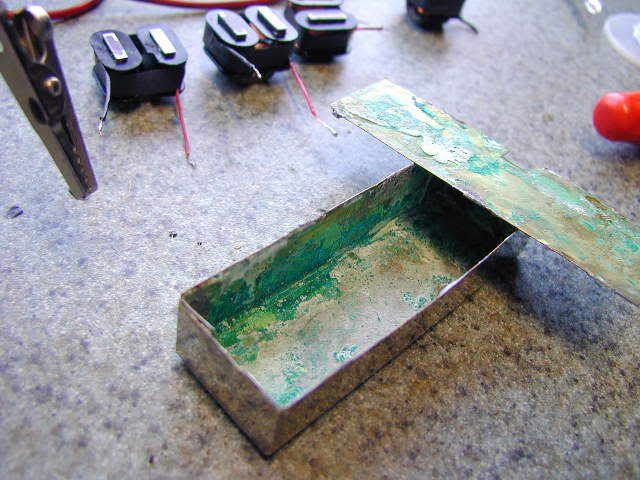How do you know it's pur beeswax? Had it tested?
Nope, I'm working on the word of the manufacturer who claims it was bees wax.
Are we to assume that the bees producing this wax were drinking acid rain? The mystery deepens....
Ummm... well no. Why would we assume that?
BTW, what's the coating on the coil wire and the lead-off wires? I suspect a chemical interaction here.
I'm not entirely sure what insulation was used on the wires. If I had to guess I would suspect it to be Formvar. Can you think of an insulation that reacts so severally with bee’s wax? I would be very interested in learning more about that. But then that would not explain the corrosion all along the inside of the covers.

Nope, I'm working on the word of the manufacturer who claims it was bees wax.
Are we to assume that the bees producing this wax were drinking acid rain? The mystery deepens....
Ummm... well no. Why would we assume that?
BTW, what's the coating on the coil wire and the lead-off wires? I suspect a chemical interaction here.
I'm not entirely sure what insulation was used on the wires. If I had to guess I would suspect it to be Formvar. Can you think of an insulation that reacts so severally with bee’s wax? I would be very interested in learning more about that. But then that would not explain the corrosion all along the inside of the covers.


Comment